In the midst of growing global concern over China's expansionist behaviour, India and three other member nations of the Quadrilateral coalition on Tuesday reaffirmed their collective vision for a free, open and inclusive Indo-Pacific while the United States favoured making the grouping a 'true security framework'.
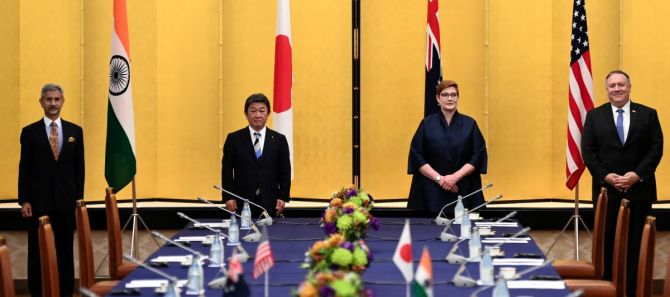
In his opening remarks at a ministerial meeting in Tokyo of the Quadrilateral coalition, also known as 'Quad', External Affairs Minister S Jaishankar said India remained committed to a rules-based world order, respect for territorial integrity and sovereignty, and peaceful resolution of disputes.
The in-person meeting of the foreign ministers of the 'Quad' comprising India, the US, Japan and Australia is taking place in the backdrop of China's growing aggressive military behaviour in the Indo-Pacific, South China Sea and along the Line of Actual Control (LAC) in eastern Ladakh.
Jaishankar also asserted that advancing security and economic interests of all countries having legitimate and vital interests in the Indo-Pacific remained a priority.
Ahead of the meeting, US Secretary of State Mike Pompeo told Japanese publication Nikkei Asia about Washington's pitch for institutionalising the Quad.
"Once we've institutionalised what we're doing -- the four of us together -- we can begin to build out a true security framework," he was quoted as saying by the publication.
Noting that it was a matter of satisfaction that the Indo-Pacific concept has gained increasingly wider acceptance, Jaishankar said, "As vibrant and pluralistic democracies with shared values, our nations have collectively affirmed the importance of maintaining a free, open and inclusive Indo-Pacific."
"We remain committed to upholding the rules-based international order, underpinned by the rule of law, transparency, freedom of navigation in the international seas, respect for territorial integrity and sovereignty and peaceful resolution of disputes," he said.
He said the meeting of the foreign ministers, despite the global pandemic, is a testimony to the importance that these consultations have gained, particularly in recent times.
The evolving situation in the Indo-Pacific region in the wake of China's increasing military muscle flexing has become a major talking point among leading global powers in the last few years.
The US has been favouring making Quad a security architecture to check China's growing assertiveness.
During his address at the meeting, Pompeo stressed on ensuring a free and open Indo-Pacific and said the conversations among the countries of the grouping should aim to achieve that 'good outcome'.
"As partners in this Quad, it is more critical now than ever that we collaborate to protect our people and partners from the CCP's (Chinese Community Party's) exploitation, corruption, and coercion. We've seen it in the south, in the East China Sea, the Mekong, the Himalayas, the Taiwan Straits. These are just a few examples," he said.
In his address, Jaishankar also mentioned about the Indo-Pacific Ocean's Initiative, which was proposed by Prime Minister Narendra Modi at the East Asia Summit in Bangkok last year to make meaningful efforts to create a safe and secure maritime domain, and conserve and sustainably use it.
In a statement, the Ministry of External Affairs said the foreign ministers reaffirmed their collective vision of maintaining a free, open and inclusive Indo-Pacific.
'They reiterated their firm support to ASEAN centrality and highlighted their readiness to work towards realising a common vision for the Indo-Pacific. Appreciating the value of these consultations, they agreed to hold them regularly,' it said.
It said the ministers also exchanged views about regional issues of mutual interest, and issues related to connectivity; humanitarian assistance and disaster relief; maritime safety and security; health security, and counter terrorism.
The US State department said the participants reviewed recent strategic developments across the Indo-Pacific and discussed ways to enhance Quad cooperation on maritime security, cybersecurity and data flows, quality infrastructure and counterterrorism.
It said the four countries reaffirmed their strong support for ASEAN centrality, sovereignty, and an ASEAN-led regional architecture for the Indo-Pacific.
The 10-nation ASEAN (Association of Southeast Asian Nations) is a major stakeholder in the Indo-Pacific.
Australian Foreign Minister Marise Payne represented her country at the meeting.
Later, a release issued by the Australian foreign ministry said it was agreed to enhance cooperation to promote a strategic balance in the Indo-Pacific.
It said the ministers reiterated that states cannot assert maritime claims that are inconsistent with international law, particularly the United Nations Convention on the Law of the Sea (UNCLOS).
At the Quad meeting, Jaishankar also referred to COVID-19 and said the events of this year have clearly demonstrated how imperative it is for like minded countries to coordinate responses to the various challenges.
"As we collectively navigate these uncharted waters, we seek to emerge from the pandemic more resilient than ever before," he said.
"You are all aware that India assumes membership of the UN Security Council next year. We look forward to seeking collective solutions to global challenges, including global recovery from the pandemic and reform of multilateral institutions," he added.
Jaishankar also mentioned about key issues such as connectivity, infrastructure development, security including counter-terrorism; cyber and maritime security.
In November 2017, the four countries gave shape to the long-pending proposal of setting up the 'Quad' to develop a new strategy to keep the critical sea routes in the Indo-Pacific free of any influence, and the first meeting of foreign ministers under the 'Quad' framework had taken place in New York in September 2019.
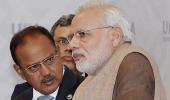

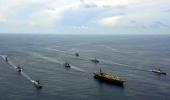
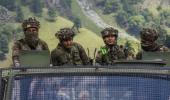




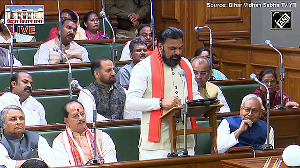


 © 2025
© 2025